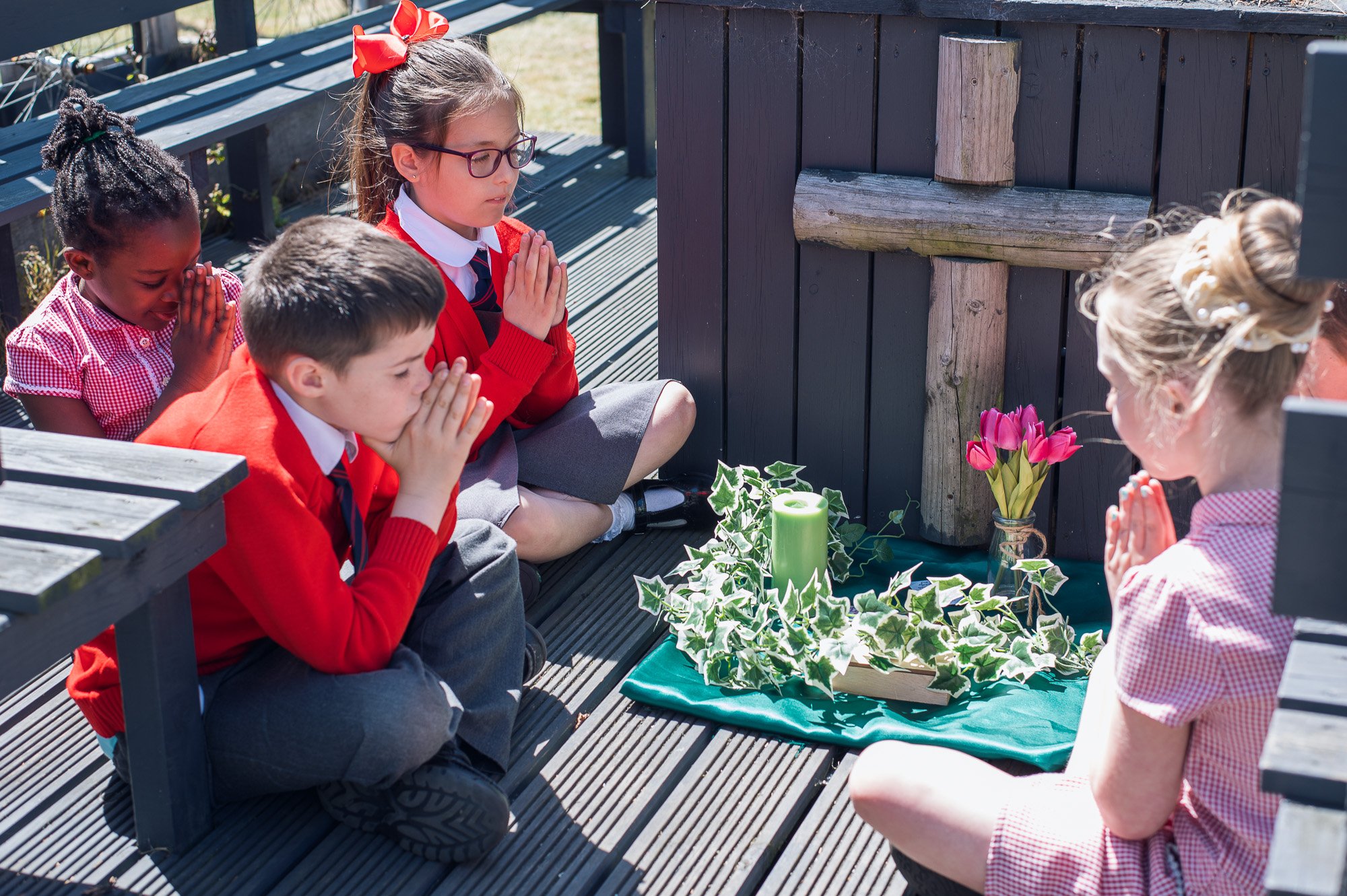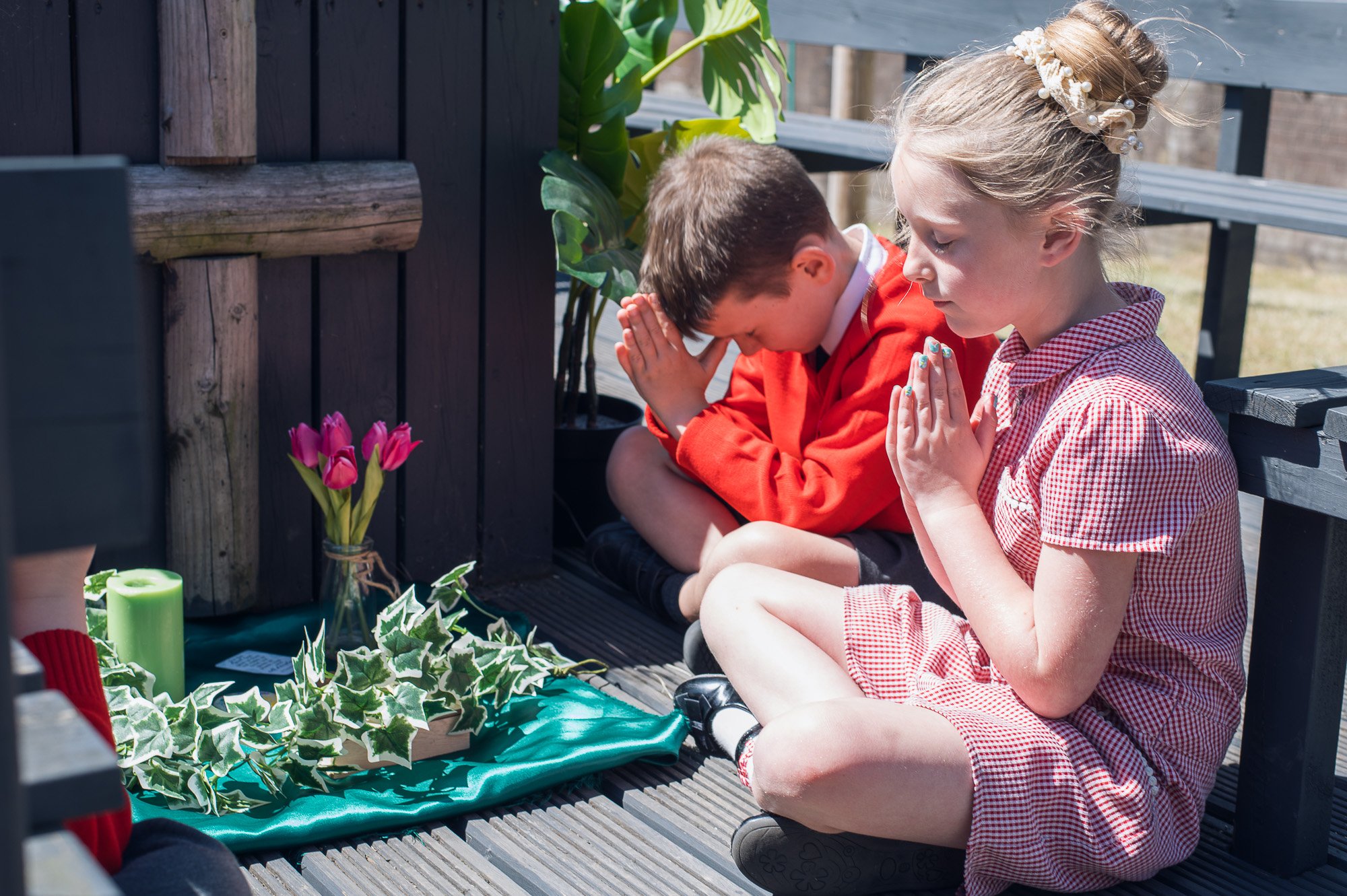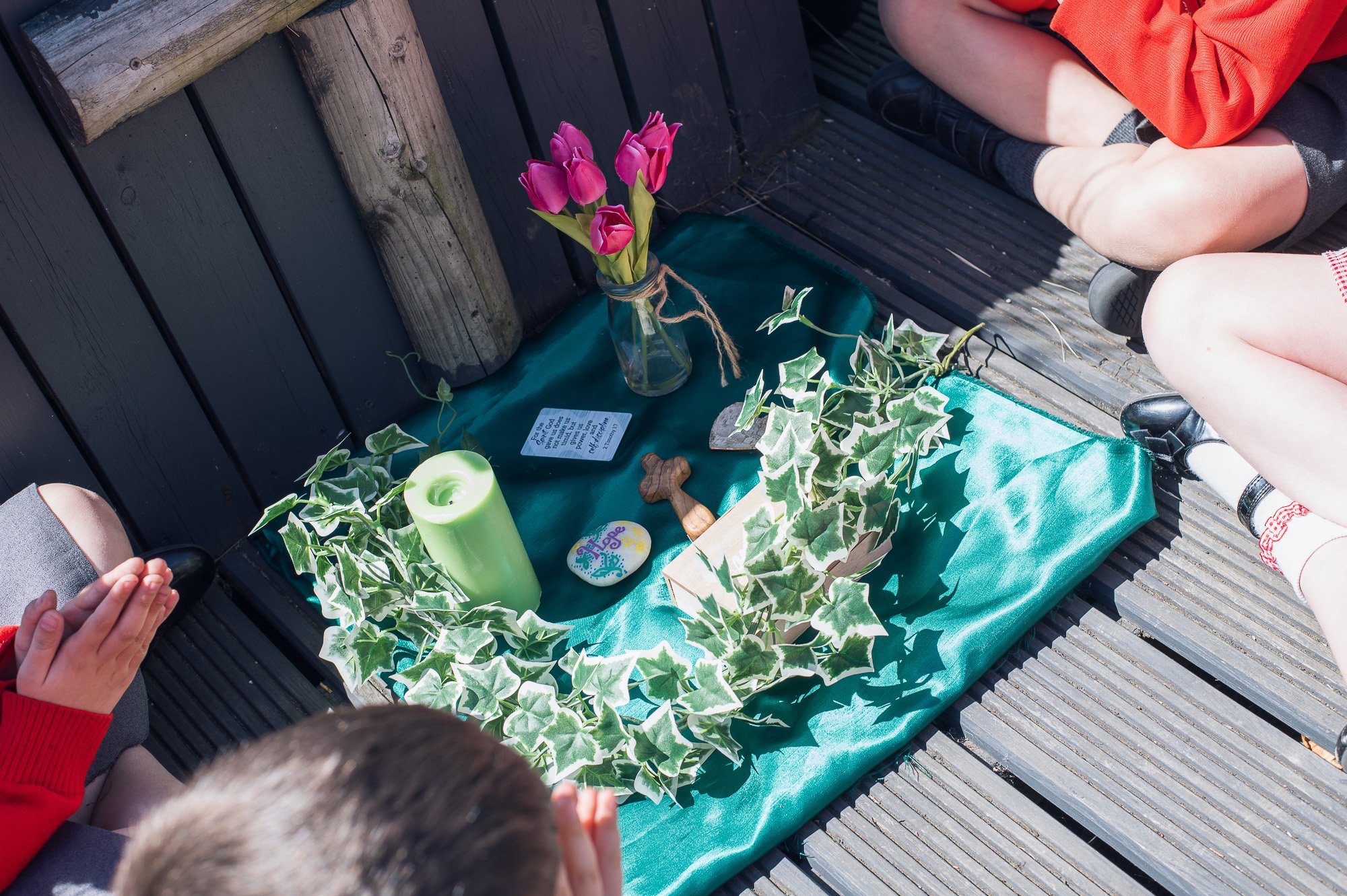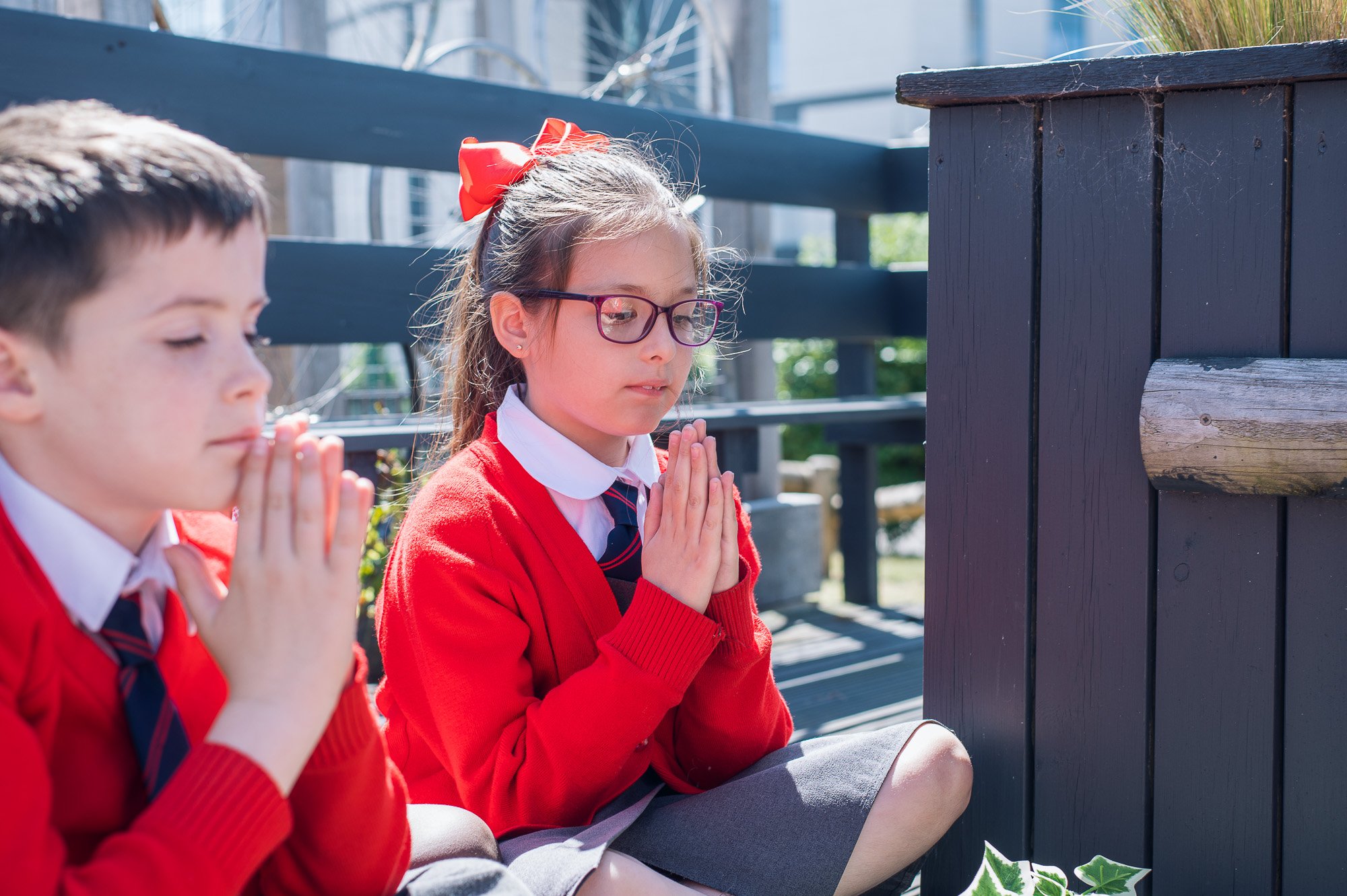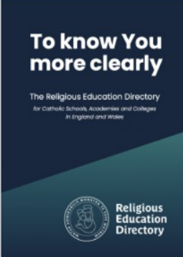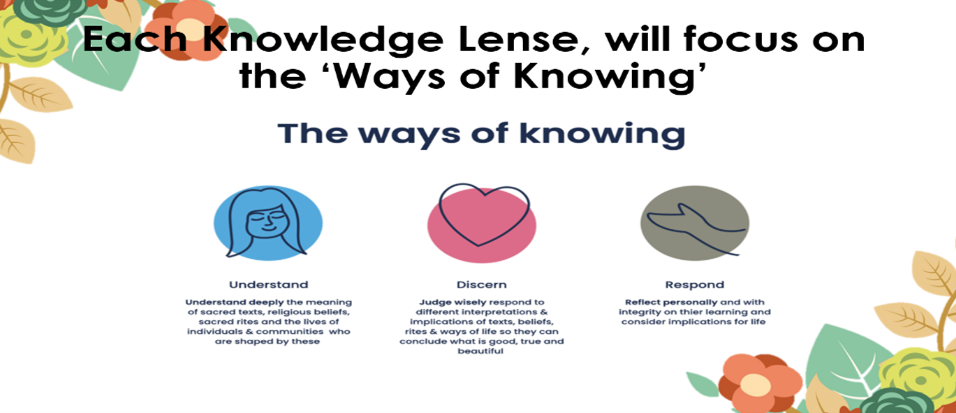
Religious Education Come and See
Religious Education
at Sacred Heart Primary School
Religious Education is the core subject within our curriculum and influences all that we teach and enables us to develop the whole person. The ‘Come and See’ Religious Education Program (which has been written by the Liverpool Archdiocese) promotes children’s spiritual, moral, social and cultural development and prepares all pupils for the opportunities, responsibilities and experiences of the present and the future. As well as this, promoting the Gospel Values of the Church also underpins everything we do and the ethos of the school.
Through religious education teaching and learning, we aim to:
Provide each child with the opportunity to develop their relationship with God.
Promote knowledge and understanding of Catholic faith and life.
Develop awareness and understanding of the impact of faith upon our daily lives.
Foster attitudes of respect towards all who live in our society.
Develop skills linked to the reflection upon and practice of religious belief.
‘To Know You More Clearly’
The Religious Education Directory (RED) for Catholic schools and Colleges is designed to provide guidance for the delivery of Religious Education teaching in schools. ‘To Know You More Clearly’ is the name of the new Religious Education Directory, which is to be fully implemented by 2025
At Sacred Heart, our Early Years Foundation Stage are implementing ‘To Know You more Clearly’ from the 2023 academic year.
‘To Know You More Clearly’
Teaching Overview
The ‘To Know You More Clearly’ teaching sequence is structured into the following six branches:
‘To Know You More Clearly’
Teaching Sequence
Each Religious Education Branch/Topic will be sequenced using a knowledge lens.
Each lens will focus on the ‘Ways of Knowing’.
‘To Know You More Clearly’
Roll Out Timeline for 2023-2024
Come and See
The ‘Come and see’ curriculum offers the opportunity to search, to explore, to discover, and to respond. The ‘Come and See’ document supports the central belief of Christ being at the centre of all that we do. In each of the terms it addresses 3 key questions to be explored through the teaching and learning in the different topics. Where do I come from? (Autumn term) Who am I? (Spring term) Why am I here? (Summer term)
Across the academic year, the children are involved in studying 9 themes/topics. The themes are explored over a 4 week period, with time dedicated to exploring the basis of the theme, revealing the meaning of scripture and the Church’s teaching and reflecting on the child’s learning and experiences. Each year, the children explore the following domains: Domestic Church, Baptism/Conformation, Advent/Christmas, Local Church, Eucharist, Lent/Easter, Pentecost, Reconciliation/Anointing of the sick and Universal Church (CAFOD focus). Each unit studied, lasts approximately four weeks and is celebrated with a class Collective Worship at the end of each unit. Evidence from each domain is collated in a class ‘Learning Journal’ which travels with each year group as they progress through the school. This enables the children to reflect on previous learning that has taken place.
As well as learning about the Catholic Faith and traditions, the children also study other Faiths across three points in the academic year. As a school we have chosen to study Judaism, Islam and Hinduism. During these weeks, artefacts and visitors bring learning to life.
There are three different types of themes within the programme, which are covered once per term. They are:
Church themes
Sacramental themes
Christian Living themes
Each theme is explored through a different topic in each age group.
The themes of each season are:
Autumn
The three autumn-time themes are developed in the light of an understanding of Creation:
Family Domestic Church focuses on life as gift, myself as a unique and loved creation, the love and care that can be expressed in family groups.
Belonging Baptism/Confirmation focuses on the call to belong, the creative potential that belonging develops; and Baptism and Confirmation, sacraments of the gift of God’s life and friendship.
Loving Advent/Christmas focuses on the capacity for entering into loving relationships and the perfect gift and revelation of God’s love, Jesus, born of Mary, born as one of us.
Spring
The three spring-time themes are developed in the light of an understanding of Incarnation:
Community Local Church focuses on the people of God gathered in Christ, united in the journey of faith, in care for one another, in sharing their story and in celebration.
Relating Eucharist focuses on the invitation to know Jesus, to live in communion with him and with one another.
Giving Lent/Easter focuses on Jesus’ loving self-giving on the cross, the Father’s love that raises him to new life and the challenge to Christians to follow Jesus’ example of self-giving.
Summer
The three summer themes are developed in the light of an understanding of Redemption and the work of the Holy Spirit:
Serving Pentecost focuses on the on-going mission of Jesus Christ in the Church through the power of the Holy Spirit.
Inter-relating Reconciliation focuses on the love, compassion and forgiveness of God the Father revealed in Jesus and poured out by the Spirit to bring forgiveness and reconciliation in the sacrament of Reconciliation.
World Universal Church focuses on the same love revealed in the diversity of the world and its people, and in the gifts of the Spirit that bear fruit in love, joy, justice and peace for all people. Each theme is explored in the different year groups as a different named topic.
Please see below for our yearly curriculum overview:
Other Faiths Overviews of Learning
As a Catholic worshiping community, children are reminded of their place in a culturally diverse society. This is achieved through our Religious Education curriculum and the spiritual life of the school. Assemblies and class work promote the diversity of society and the right for each person to be respected and valued equally regardless of ability, gender, faith, heritage or race.
Learning about other religions and cultures is one of the ways in which we fulfil our call to love our neighbour. As the Church says, “The love for all men and women is necessarily also a love for their culture. Catholic schools are, by their very vocation, intercultural.” (Congregation for Catholic Education p61).
The Church states that schools “try to understand better the religion of one’s neighbours, and to experience something of their religious life and culture.” (Catholic Bishops’ Conference p3).
The Church suggests that schools “find ways in which pupils can learn to engage in dialogue and to develop an attitude of respect for religious diversity. This will necessitate the inclusion of a broader study of both Christianity and of other world faiths in the Religious Education syllabus.” (Bishop’s Conference of England and Wales, 1997)
It prepares our children for life in modern Britain, giving them an understanding of the beliefs of others.
We follow the value of Tolerance by:
visiting places of worship for other faiths and receiving visitors from other faiths in school
recognising and celebrating cultural celebrations for children from different countries within our school
raising money for those in need locally and internationally
teaching in Religious Education
At Sacred Heart we will learn about other faiths through the Religious Education programme – Come and See as per the overviews below:
Overview

Religious Education in Action



